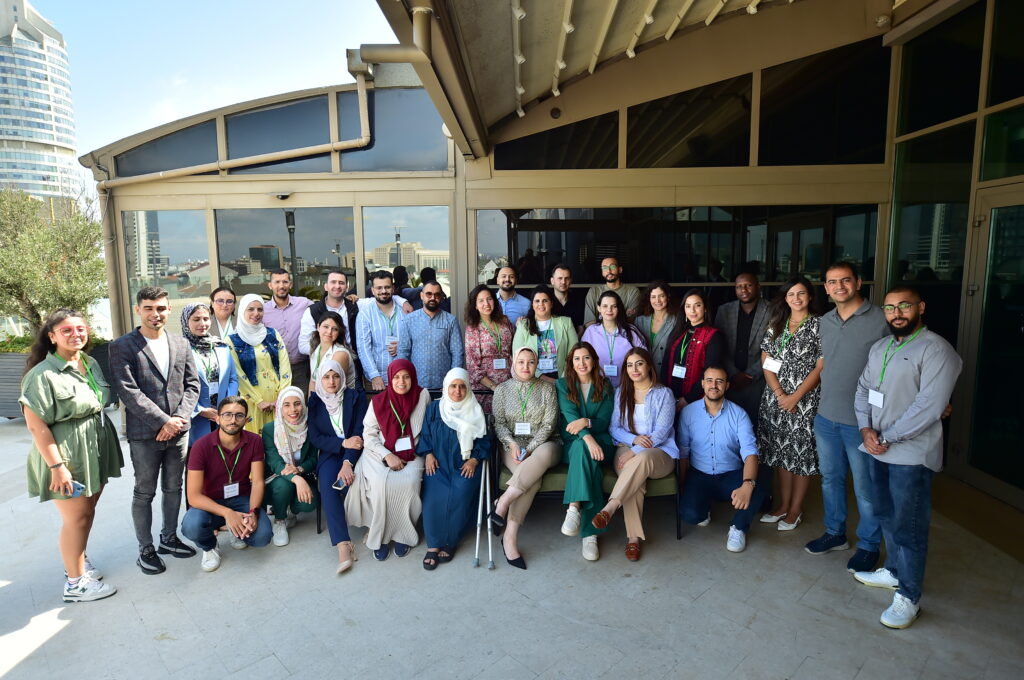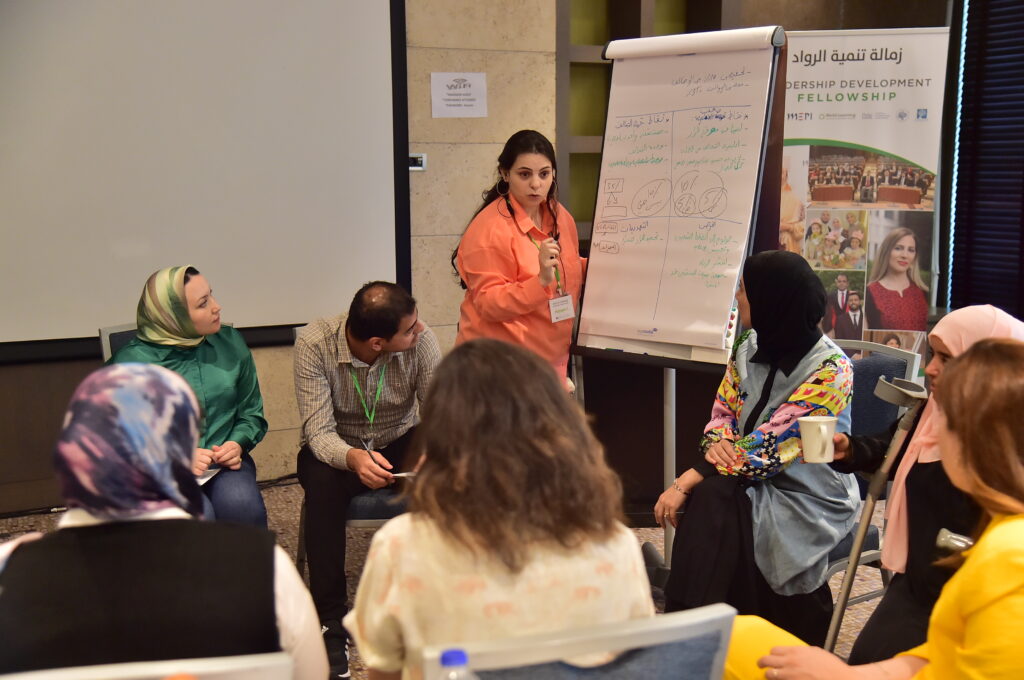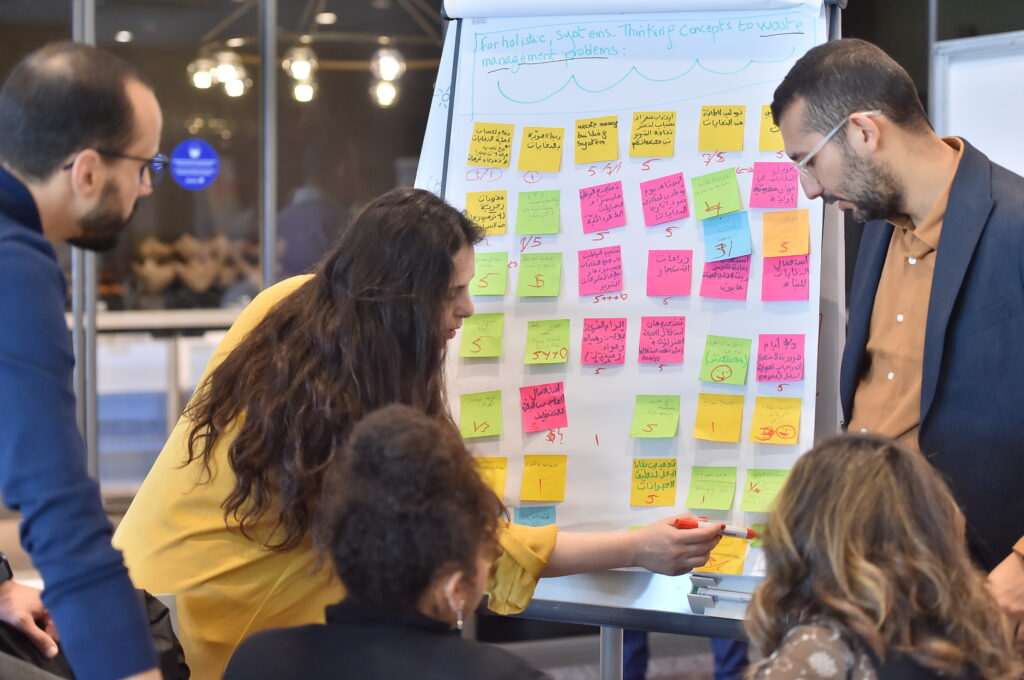-
What We Do
- WHERE WE WORK
-
About Us
 Welcome Message from Carol Jenkins
Welcome Message from Carol JenkinsFor more than 90 years, World Learning has equipped individuals and institutions to address the world’s most pressing problems. We believe that, working together with our partners, we can change this world for the better.
On my travels, I’ve had the opportunity to meet with many of those who have joined us in this mission. In Baghdad, we’ve trained more than 2,300 Iraqi youth who are already giving back at home. In London, our partners in the TAAP Initiative strongly believe that we are all responsible to practice inclusion. And in Vermont, our Experiment in International Living and School for International Training participants prove every day that they have the tools and the determination to change the world.
Please join us in our pursuit of a more peaceful and just world.
- Get Involved
Media Center > Story
Leadership Development Fellowship fosters advocates for climate action
December 13, 2023
By Eric House

This fall, 32 emerging leaders from the Middle East and North Africa (MENA) region gathered in Istanbul, Turkey, to discuss civic engagement and social entrepreneurship through the lens of climate change.
The group members were participants of the Leadership Development Fellowship (LDF), a program funded by the U.S. Department of State’s U.S.-Middle East Partnership Initiative (MEPI).
LDF is designed to enable early- to mid-career professionals to launch projects that address economic and social issues in their communities. It is administered by World Learning in collaboration with Duke University.
Over 12 months and five stages, the fellows will do coursework and workshops with field experts, work in cross-cultural settings to help solve local challenges, and develop and strengthen their leadership skills—all with the intent to foster innovative ways to combat climate change in their home communities.
The LDF Fellowship helped me discover the different ways I can grow and develop. I also learned that we can raise our voices and make an even bigger impact on our society.
In Istanbul, the workshops focused on systems analysis, negotiation, inclusive interventions, and building partnerships. During this initial stage, the participants also reflected on the challenges they hope to address in their communities and identified what they hope to gain from the experience.
El Mahdi Bakkari, a cultural engineering program manager from Morocco, plans to address the lack of electricity in rural areas of his country, which can quickly lead to food waste. His project aims to create refrigerators that work with water instead of electricity, allowing people to keep their produce fresh for longer.
More than 80 million tons of waste is produced in Egypt, 50 million of which Mostafa El Naby, a sustainable waste solution entrepreneur, said is burned or dumped into waterways. He wants to reduce water consumption, use less chemical fertilizer, and boost crop yields by recycling the waste into organic fertilizer.

Other participants were focused on empowering the members of their community to be active in making a positive difference. Nabila Hammouda, a sustainable development coordinator from Algeria, hopes to use her LDF experience to engage youth in decision-making and inspire them to participate in public life. At the same time, she plans to learn more about climate change and become a climate leader.
“My participation in the LDF Fellowship will allow me to become more familiar with the climate obstacles my country is facing,” she said.
“One of the lectures focused on the topic of carbon footprints,” El Naby said after sessions on environmental law and the measure of carbon produced by an individual. “Thanks to the session, I began to see that my company’s recycled waste is not the only final product that we can sell. I’m beginning to explore using the conserved carbon as another source of revenue.”
Participants also gained lessons and skills that can be applied broadly to their careers.
“We can’t only consider the issue from our own geographic location – we must see how the whole world is making progress in dealing with the issue,” El Naby said. “From there, we can see how we can apply that in our local community.”
“Yes, we have crisis moments, but take five minutes and reflect on what’s really needed before you just go take action,” Bakkari said after an exercise on the importance of deliberation.

“Before, I would have started taking action immediately, before even thinking, ‘What do they really need?’ I would just bring the types of support that I have. Pausing before taking action is important because you can’t go for things without evaluating yourself.”
Additionally, a learning session on negotiation raised the importance of serving the public. “The public good serves everyone, especially those who are weakest financially or who don’t have decision-making power,” Hammouda said. “It’s a huge responsibility on our shoulders to negotiate for the good of all.”
Through these powerful lessons and exercises, the participants took away invaluable tools that they can apply to their projects to benefit their communities. In the process, they reflected upon their growth as leaders.
Since joining LDF, I’ve started to see myself as a leader to an even greater extent. I learned that I must have a vision for how I can benefit from the other LDF Fellows’ expertise and the professors’ educational content.
“The LDF Fellowship helped me discover the different ways I can grow and develop,” said Hanan Ismail, an entrepreneur from Lebanon. “I also learned that we can raise our voices and make an even bigger impact on our society.”
“I discovered that there’s a difference between a leader and a traditional manager,” Hammouda said. “We all thought we were leaders before that. But we discovered that to be a leader, you can’t leave anyone or anything behind, and everyone needs to have the same vision and want to arrive at their goal together.”
“Since joining LDF, I’ve started to see myself as a leader to an even greater extent,” El Naby said. “I learned that I must have a vision for how I can benefit from the other LDF Fellows’ expertise and the professors’ educational content. This experience has given me information that is shaping how I think as a leader.”





